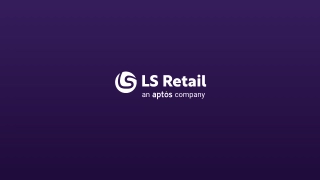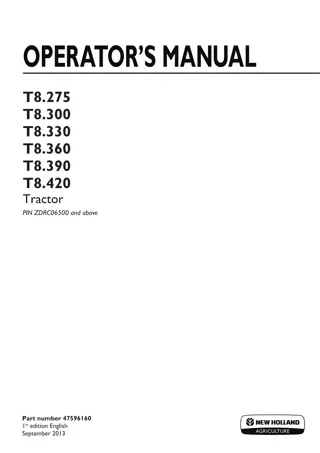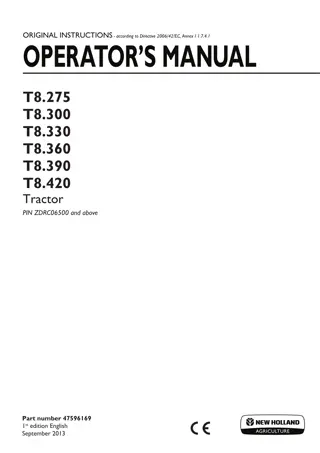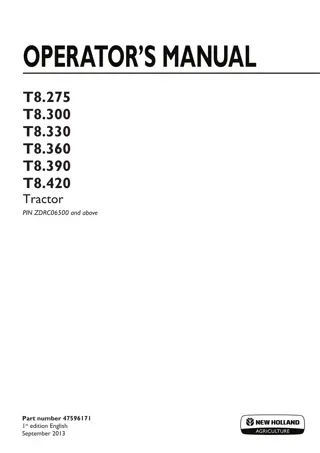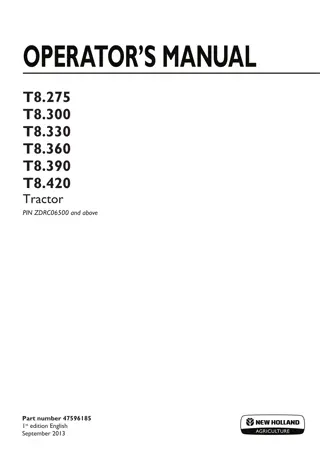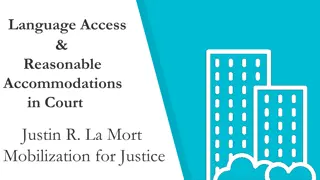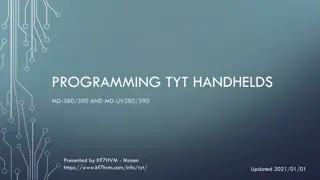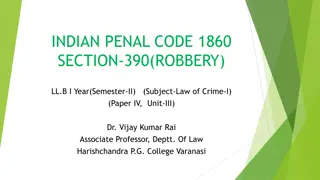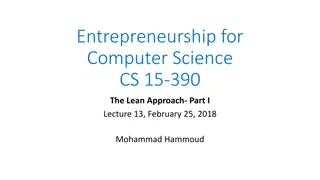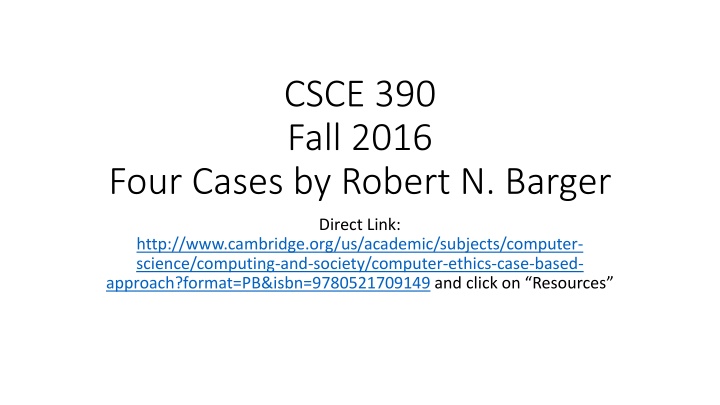
Computer Ethics Case Studies and Analysis
Explore four intriguing case studies in computer ethics involving issues such as privacy, monitoring, and censorship. Delve into ethical dilemmas faced by individuals and organizations in the realm of technology and society. Learn about the implications of various actions and decisions through real-world scenarios.
Download Presentation

Please find below an Image/Link to download the presentation.
The content on the website is provided AS IS for your information and personal use only. It may not be sold, licensed, or shared on other websites without obtaining consent from the author. If you encounter any issues during the download, it is possible that the publisher has removed the file from their server.
You are allowed to download the files provided on this website for personal or commercial use, subject to the condition that they are used lawfully. All files are the property of their respective owners.
The content on the website is provided AS IS for your information and personal use only. It may not be sold, licensed, or shared on other websites without obtaining consent from the author.
E N D
Presentation Transcript
CSCE 390 Fall 2016 Four Cases by Robert N. Barger Direct Link: http://www.cambridge.org/us/academic/subjects/computer- science/computing-and-society/computer-ethics-case-based- approach?format=PB&isbn=9780521709149 and click on Resources
Juicy Campus Case 5991 NYT: http://nyti.ms/1mtvT3Y NYT: http://bits.blogs.nytimes.com/2009/02/05/juicycampus- collegiate-tabloid-goes-offline/?_r=0 Some relevant ACM code imperatives: 1.7, 1.8, 2.5 Some relevant ACM/IEEE-CS code principles: 1.03, 1.04, 2.07, 3.03, 3.12, 3.13 (data provenance)
TEXAS REGULATION OF COMPUTER REPAIR Case 6152 A publicity stunt? No NYT article found https://consumerist.com/2008/07/09/texas-law-probably-does-not-require-pi- license-to-fix-spyware-infested-computers/ includes quotes from Texas representatives Sometimes you get a spouse coming in wanting to know what the other spouse is doing on the computer. And you have companies who might want to investigate because they re worried someone within their organization is sending information to their competitors. Law vs. ethics Some relevant ACM code imperatives: 1.7, 1.8, 2.3, 2.8 Some relevant ACM/IEEE-CS code principles: 2.5, 3.13, 6.06,
E-MAIL PRIVACY CASE Case 6153 The general rule concerning use of e-mail in the workplace is that employees should have no expectation of privacy. But, in this case The ACM and ACM/IEEE-CS codes may not to be relevant, since no professional expertise is needed to read emails in the context of the specific case. Still, see the second paragraph of the guidelines in ACM 1.7. Questions: 1. Was it ethical for Sidell s employers to access his personal Yahoo! e-mail account without his permission while it was open on his desktop computer? Give reasons for your answer. 2. Regardless of how you answered Question 1 above, do you think it was ethical for Sidell s employers to consult Sidell s e-mails to his attorneys in his personal Yahoo! Mail account regarding strategies in his arbitration claim against SSI? Give reasons for your answer.
THE GREEN DAM - YOUTH ESCORT CASE Case 7494 NYT: http://nyti.ms/2eGarUT Neither the ACM Code of Ethics and Professional Conduct nor the ACM/IEEE-CS Code on Software Engineering Ethics and Professional Practice include the work censor and related words. There are side issues involving the quality of the software and its impact on computer performance. Censorship is an ethical issue. Article 12 of the Universal Declaration of Human Rights states: Everyone has the right to freedom of opinion and expression; this right includes freedom to hold opinions without interference and to seek, receive and impart information and ideas through any media and regardless of frontiers.

